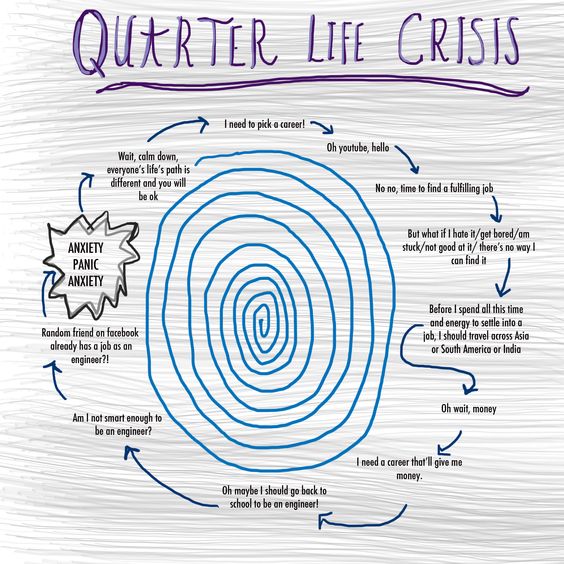Adulting 101
Starting Small, Dreaming Big: A Guide for Kenyan Youth Entrepreneurs
Published
2 years agoon

We all have needs that don’t fit into our budgetary provisions for a month and asking your parent for more money without the question, “what for?” is impossible. But even with our current economy, it is almost unreasonable for a middle- or lower-income earner to rely entirely on one revenue stream. The best way to break that cycle is for you to enter the business world; have multiple revenue streams and understanding the essentials of launching a small business is key. Navigating the business world can be tricky but lucky for you, we’re here. This guide offers practical advice, highlighting successful models and key financial partners for you to start your business; starting small.
1. Identifying a Niche:
Look for unique problems in your community, things your friends require and fill that gap, find a problem that you can solve: that’s your business idea.
Example: EcoPost, a Kenyan startup, found its niche in recycling plastic waste into durable building materials, addressing environmental concerns and creating a profitable business.
2. Lean Startup Model:
Begin with minimal resources, don’t strain yourself, start with the little resources you have, test that your niche is viable by doing a presale or preservice offering of your product or service, then iterate based on feedback. Decide at that point if you want to go through with the business plan or if you want to rethink and try something else; theres no shame in failing, as long as you continue to invest in yourself and try.
3. Embracing Digital Tools
Everyone’s glued to their phones and laptops, right? Use that to your advantage. Get your business on social media, build a snazzy website, or even create an app if that’s your thing. It’s all about reaching people where they hang out – online.
Social Media Magic: Platforms like Facebook, Instagram, and Twitter are great for marketing. Post cool pics, engage with your audience, and even run ads without spending a fortune.
Website Wizards: Tools like Wix or Squarespace let you set up a slick website easily. It’s like having your own digital shop window.
App Adventures: If you’re feeling fancy, use app builders like Appy Pie or BuildFire. Create an app for your business and get on everyone’s phone!
Marketing Gurus: Mailchimp or Sendinblue for email marketing can help you reach out to customers with news and deals.
Operation Organizers: Asana or Trello are great for keeping your business tasks organized. Trust me, you’ll wonder how you ever managed without them.
4. Funding and Financial Partners:
For all businesses, one of the most important factors are who your financial partners are. Banks like Equity Bank, KCB Group, and Co-operative Bank are known for supporting small businesses with loans and financial advice, once you have tested your business model, approach your bank of choice and talk to them, find out how they can help and what advantages there are with opening a small business account with them.
Microfinance Institutions: Institutions like Faulu Kenya and SMEP Microfinance Bank offer loans tailored to small startups.
Visit as many as you have to to find one that perfectly accommodates you. Choose financial partners that understand and support small business needs.
5. Government and NGO Support:
Government initiatives like the Youth Enterprise Development Fund provide financial support and training. It’s not just the government; loads of NGOs like enpact are also in the mix. Ready to back you up with extra funding, workshops, and networking events. Keep an eye out for local and international NGOs that have programs for young business owners.
Scout for Opportunities: Always be on the lookout for government grants, loans, or training programs. Keep your ears open and check out official websites regularly.
Network with NGOs: Get involved in local business communities and online forums. This way, you’ll hear about NGO programs that could benefit your business.
Apply Like a Pro: When you find an opportunity, go for it! Put together a solid application or proposal. Make sure to show them how awesome your business idea is and how their support can help it fly.
Tapping into these resources can give you a serious leg-up. It’s not just about the money (which is super helpful, obviously), but also about the training, mentorship, and connections you can gain. These programs can be a game-changer, especially when you’re just starting out.”
6. Networking and Community:
Building a network can provide invaluable advice, partnerships, and growth opportunities.
Starting a small business in Kenya is an exciting venture,even though we are overtaxed, the country’s spending power increases. With the right approach, identifying a niche, starting lean, embracing digital tools, choosing the right financial partners, and building a strong network, young entrepreneurs can turn their business dreams into reality.
Networking: Your Business Buddy System:
Imagine having a group of friends who get the whole business thing. That’s what building a network is all about. It’s like having your own personal think tank. You can bounce ideas off them, get some real talk advice, or even find a partner for your next big thing. Remember how in school we were taugh about how important it is to keep good, beneficial friends? This is where it pays off. It opens doors to opportunities you didn’t even know existed. From landing your first client to finding a mentor who’s been there, done that, a strong network can be the secret sauce to your business success.
Example: iHub and Nairobi Garage offer networking opportunities with fellow entrepreneurs and mentors.
Jumping into the business world here is like starting an adventure. Yeah, we are overtaxed but the spending power of the country continues to rise. You’ll come across a new car ever so often or a new highrise building. So this is your chance to tap into that resource.
The Game Plan
Find Your Spot: What’s missing in your hood? Is it a cool coffee shop or an app that makes life easier? That’s your niche.
Start Smart and Lean: You don’t need a pile of cash to start. Begin with what you have and grow as you go, learn as you go.
Digital is Your Friend: Use those online tools to make noise about your biz. Social media, websites, apps – get on all of it.
Pick the Right Money Friends: Whether it’s a bank that gets small businesses or a microfinance place, choose someone who speaks your financial language.
Network Like a Boss: Get out there and make friends in the business world. They’re your ticket to bigger and better things.
Making Dreams Reality: With a bit of smarts, a dash of courage, and a whole lot of hustle, you can turn those business daydreams into your everyday grind. Kenya’s market is ripe for the picking, so why not you, right?
You may like


Singer Vallerie Muthoni Releases New Collab With Lil Maina And Kahvinya


Sean Paul And Top Kenyan Talents Set For Epic Concert


Celebrated Author Joan Thatiah Releases Her 10th Book: A Powerful Tribute To Nairobi Men’s Voices


Jamaican Dancehall Artist Sean Paul To Perform In Kenya This December


Spotify Has Quietly Hiked Prices in Kenya


Packed Fall 2024 Anime Lineup: What to Expect This Season
Adulting 101
Emoji Users May Be More Emotionally Intelligent, Study Finds
Published
1 year agoon
December 15, 2024
Research reveals that individuals who frequently use emojis in their text conversations with friends and family tend to have a higher level of emotional intelligence.

These expressive icons may be more than just playful additions to messages—they can reflect a deeper connection with one’s feelings.
The study, conducted in the U.S., surveyed 320 participants about their backgrounds and messaging habits. Findings indicated that those confident in using emojis demonstrated a strong capacity for understanding and managing emotions. Interestingly, while women were more likely to use emojis, individuals who identified as anxious or private were less comfortable incorporating them into their communication.
Dr. Simon Dubé, a psychologist from the Kinsey Institute at Indiana University, emphasized the significance of these digital tools in modern communication. “The way we interact during virtual conversations reveals more about ourselves than we might think,” he explained. “Emojis are not just smiley faces or heart icons—they are tools for conveying meaning and enhancing communication.”
According to Dr. Dubé, emojis play a vital role in bridging the gap created by the lack of non-verbal cues in virtual exchanges. “They meet the need for non-verbal support, helping to reduce uncertainty, adjust the tone, or increase the clarity of a message,” he noted.
This research highlights the evolving ways we adapt to digital communication, suggesting that emojis are more than simple decorations—they’re essential tools for emotional expression and connection in a text-driven world.

Do you feel like life’s throwing you one too many curveballs lately? Welcome to your quarter-life crisis—well, I wouldn’t call it that, more like a plot twist!

If you’re in your 20s or early 30s, chances are you’ve felt that unsettling mix of confusion, anxiety, and “What am I even doing with my life?” vibe. But hey, it’s not as grim as it seems. This phase, though overwhelming, is more of a growth spurt for your mind and soul.
Here’s How to Navigate this Rollercoaster with Style
1. Embrace the Chaos, Don’t Fight It
First off, let’s normalize the chaos. Life’s not a straight path, and the sooner you accept the zig-zags, the smoother your ride will be. Remember, everyone’s story is different, so don’t compare your journey to someone else’s Instagram highlight reel.
This period of uncertainty? It’s just the universe’s way of nudging you towards something bigger and better.
2. Reflect and Redirect
Feeling lost? That’s your cue to pause and reflect. Ask yourself the deep questions: What do I really want? What makes me happy? It’s okay if you don’t have all the answers right away.
Start small—maybe it’s time to pivot in your career, explore a new hobby, or even take a solo trip to clear your mind.
The goal is to redirect your energy towards what genuinely matters to you.
3. Surround Yourself with Positivity

Your vibe attracts your tribe, so keep it positive. Hang out with people who uplift you, not those who drain your energy. And don’t forget to celebrate the small wins—whether it’s finally nailing that work project or just getting out of bed when you didn’t feel like it. Positivity breeds more positivity, and that’s what you need right now.
4. Trust the Process
Trust me, everything you’re going through is preparing you for something amazing. You might not see it now, but hindsight’s 20/20, right? So, trust the process and keep moving forward, even if it’s just one baby step at a time. Your plot twist? It’s leading to a grand finale that’ll be worth the wait.
A quarter-life crisis isn’t the end of the world; it’s just a chapter in your story. Embrace the uncertainties, learn from them, and use this time to craft a life that’s true to who you are. After all, you’re the author of your own story and this plot twist? It’s just the beginning of something epic.

Adulting 101
Career Hopping: The Emotional Cost of Constant Reinvention
Published
1 year agoon
August 14, 2024
Remember the days when people would stick to one job for life? Yeah, that’s a distant memory for most of us. These days, switching careers every few years seems to be the norm, especially among millennials and Gen Z. It’s exciting, keeps things fresh, and opens up new opportunities. But beneath the surface, career hopping can take an emotional toll that’s often overlooked.
So, what’s the real cost of constantly reinventing ourselves in the professional world. Let’s face it—career hopping is both thrilling and terrifying. On one hand, it’s all about exploring new opportunities, challenging yourself, and refusing to settle for anything less than what you deserve. On the other hand, it’s a rollercoaster of uncertainty, where each leap into the unknown comes with its own set of risks and emotional challenges.
One of the biggest pressures driving career hopping is the fear of missing out (FOMO). We’re bombarded with success stories on social media—people landing dream jobs, starting businesses, and seemingly living their best lives. It’s hard not to compare yourself and wonder if you’re falling behind. This can push us to jump from one job to another, always in search of the next big thing, but never truly settling into a role.
But here’s the thing: constantly changing jobs can be exhausting. Each new position comes with a learning curve—new skills to master, new colleagues to understand, and a new work culture to adapt to. It’s a lot to take on, and the stress can quickly add up. The excitement of a fresh start can be overshadowed by the anxiety of having to prove yourself all over again.Moreover, there’s the emotional impact of leaving behind teams and projects that you’ve invested in. It’s not just about the work; it’s about the relationships you build along the way. Saying goodbye to colleagues who’ve become friends can be tough, and starting over in a new environment can feel lonely at times.So, how can we navigate the ups and downs of career hopping without losing ourselves in the process? Here are some tips:
– Reflect on Your Goals: Before making a move, take some time to reflect on your long-term career goals. What do you really want to achieve? Will this new role bring you closer to that goal, or are you just chasing the next shiny thing?
– Embrace Lifelong Learning: Instead of hopping from one job to another, consider ways to grow within your current role. Lifelong learning—whether through courses, certifications, or new projects—can help you stay challenged and fulfilled without the need to constantly change jobs.
– Build a Support System: Career hopping can be emotionally draining, so it’s important to have a support system in place. Whether it’s friends, family, or mentors, having people to talk to about your experiences can make a huge difference.
– Prioritize Mental Health: Don’t forget to take care of your mental health. The stress of career changes can take a toll, so make sure you’re practicing self-care, whether that’s through meditation, exercise, or simply taking time to relax.In the end, career hopping isn’t inherently good or bad—it’s about how you approach it.
By being mindful of the emotional impact and making decisions that align with your long-term goals, you can enjoy the benefits of career hopping without burning out. After all, the journey is just as important as the destination.

Meghan Markle Delays Netflix Series Premiere Due To LA Wildfires

Satire Meets Culture On New Comedy Series ‘A Very Kenyan Sketch Show’

Netflix Set To Debut A Gripping Kenyan Drama Series ‘Mo-Faya’
Trending

 Adulting 1013 years ago
Adulting 1013 years agoPersonal Brand Online (Part 2)

 A Chat With3 years ago
A Chat With3 years agoA chat with DJ Elye (the sunday skool drop out)

 Adulting 1013 years ago
Adulting 1013 years agoPersonal Branding (Part 1)

 A Chat With5 years ago
A Chat With5 years agoA MOMENT WITH SHARON WENDO, FOUNDER OF EPICA JEWELLERY

 Health1 year ago
Health1 year agoLet’s Get Mind, Body and Spirit Aligned!

 Adulting 1011 year ago
Adulting 1011 year agoRediscovering Yourself Through Solo Travel: The Mental Health Benefits of Venturing Alone

 Entertainment3 years ago
Entertainment3 years agoKenyan Movie Disconnect: The Wedding Planner Is Now Streaming On Netflix

 A Chat With3 years ago
A Chat With3 years agoFind out why ‘mutura is not a street food’ as Wanjira Puts it!






























